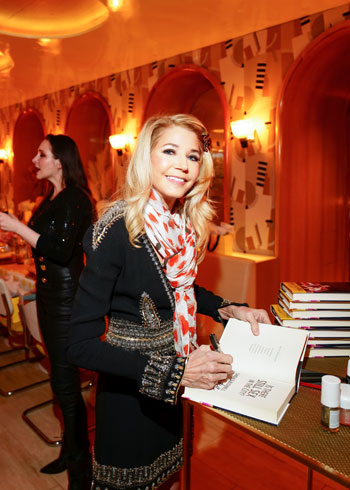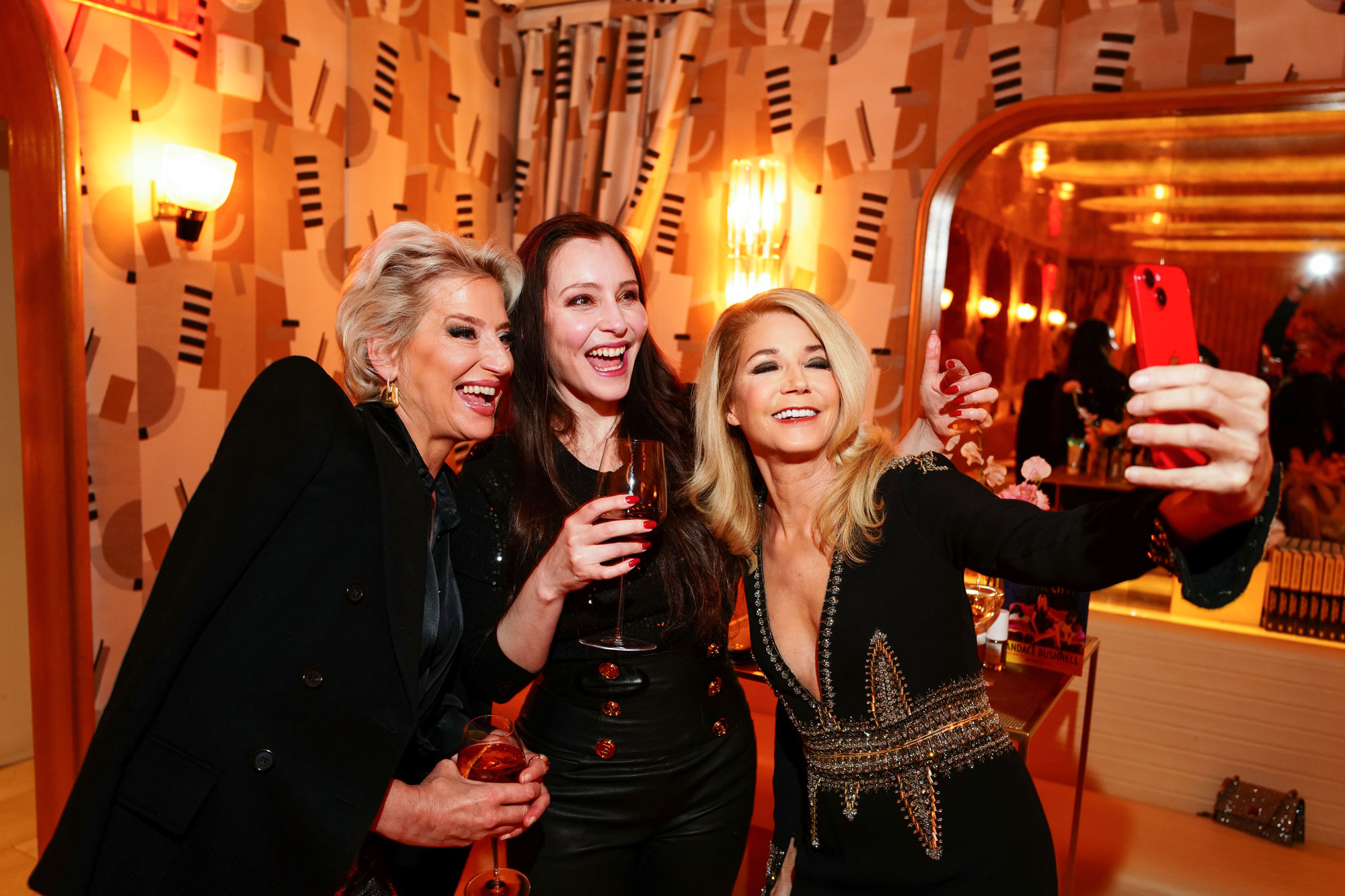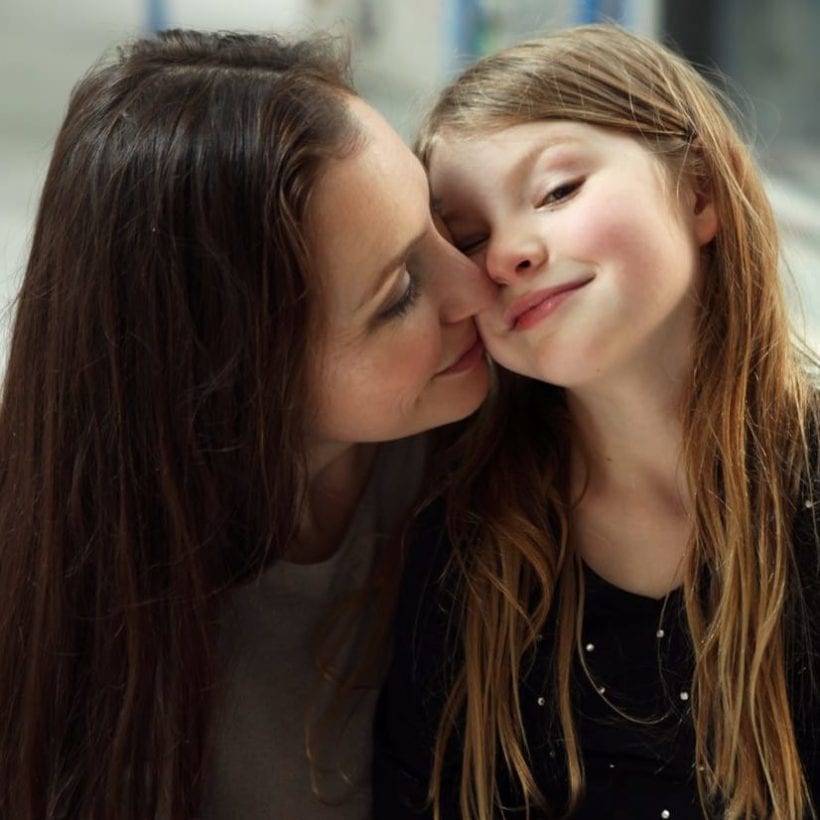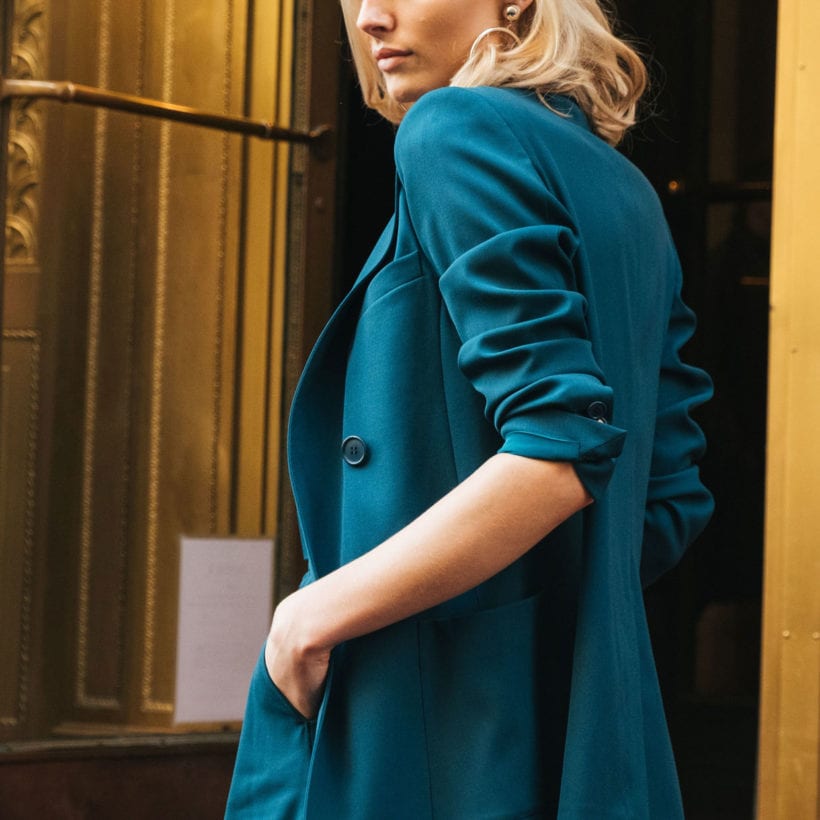On Sunday, Feb. 12, Sunday Riley — the eponymous founder of the beloved skincare brand — and famed author Candace Bushnell came together at N.Y.C.’s Cucina Alba to discuss their entrepreneurship journeys, how they stay motivated, and their personal “Glowments,” the a-ha moments in their lives that changed everything for them.
Here, an excerpt of the pre-dinner Q&A they participated in with interviewer Faith Xue, the executive beauty director at Bustle Digital Group.
You are both such emblems of female empowerment in your respective fields. Tell me a bit about what it’s been like being a female leader for you.
Sunday Riley: From my perspective, it is still male-dominated. There were a lot of instances in the beginning, in the middle, and now where people still ask me to quantify how I have my role. I’ll be on a panel with people who have the same position as me, and they’re male. To them, [the panel host] will say, “congratulations!” and then they get to me and ask, “What did you do to get where you are?” And I think, would they have ever asked a man in this role that question?
Candace Bushnell: Oh God, I probably have such a different answer. First of all, I’m older than you are, so I really grew up in a time where, I mean, the world was so sexist, and there were very, very specific ideas of what women could and couldn’t do. I really felt it was my mission actually from a very young age to show women the way, show the world the way women really are, and try to get women not to believe what society tells you to think because it really was a really kind of frightening group thing, and that has changed so much.
And you were writing about female sexuality and escapades. What was the reception like at the time?
Candace: I actually started writing about sex from an early age because, for some reason, I was very interested in human sexuality. I grew up in a time when nobody talked about it at all. And then things changed in the early 1980s — the era of the Big O. You couldn’t go into a supermarket without seeing Cosmopolitan, and every headline was, you know, “How to Get the Big O.” Sex was very different because it was really all about women having an orgasm. It was like, oh, men kind of, there was a freeness and understanding that women’s pleasure mattered, and before nobody was ever talking about that. But I think what kind of shocked people with Sex and the City was that they recognized themselves.

And, you know, when I started doing the column, it wasn’t meant for a big audience. It was really specifically meant for the New York Observer audience, which was a very sophisticated audience. And, you know, they understood all of the social nuances like where you were on the food chain, why you were there, why you were at this party, how someone could be upset about not being invited there, and you know, the sexual politics of mating and dating. I think that people were kind of intrigued and a little bit shocked by that aspect. And then the show came out, and it really took the world probably about four or five years to catch up.
Thank you for paving the way, we all appreciate that. Sunday, I know you’ve talked a bit about how people underestimate you. I’d love to hear more about any hurdles that you’ve overcome in your journey.
Sunday: When I started this brand, it was like I wasn’t at a high point in my life; I really was at a crossroads. I had a baby. I was like, you know, I have to do something with my life, and I wasn’t sure what it was gonna be, but I was like, I gotta get out of this rut.
I started organizing my life a little bit, and then an opportunity came up to start a skincare brand. I like to think big. I think that’s the secret: thinking really, really freaking big. I believed in it, and I had nothing to lose. I put everything I had into it, which was, by the way, not a lot. I had two kids. I was a single mom. I moved back in with my parents and started my business there. I would pack our products on my parents’ pool table. From there, it took off, and there was just adversity. When we launched at Barney’s, we were given three stores. They gave us six months to make it a success. Success was loosely defined, but they put us behind the Christmas tree during the holiday season, and you couldn’t see us. So I hired people and told them to do everything they could to be disruptive. Like, literally walk to the front of the store and grab someone. And every single person that I hired at that time had that same hungry feeling of like, we got one shot.
My own mother said to me, at what point do you admit defeat and get a real job? And I responded, “not today.” When I launched this brand, I paid payroll out of my savings. I’ve had my card get declined when grocery shopping with my kids. It was tough, but I just had this faith that if I kept steering forward, something would open. And every single time I have screwed up, it’s been when I was connected to fear, not to faith — every single time.
I love what you said about just breaking the rules and knowing what you want and going after it. Sunday, you have a phrase that you like to use called “Glowment,” a moment when everything sort of changes for you. I’d love to know what it was for both of you.
Candace: My Glowment was probably when I got the “Sex and the City” column.
And you were a freelance writer before that?
Candace: I was a freelance writer for a long time and wrote something for Hamptons Magazine called “The Human Cartoon,” which was like a precursor to “Sex and the City,” but it was a little bit crazier. That was something that I’ve been pushing to do since I was probably 19 or 20, and I moved to the city, and the job of gossip columnist had come open at the New York Observer.
So I went for the job along with this other guy, and we each had to write a sample column and the guy ended up getting the regular job because, as the editor-in-chief said, he had a wife and a child that he needed to support. But two weeks later, the editor-in-chief called me up and asked if I’d like to have my own column. And that’s how “Sex in the City” was born. I just knew it was my big break.
There’s no question every single time I tried to be a version of myself that I thought was more palatable or what people expected — it was catastrophic. And then I was like, you know, this is who I am. This is where I’m from.
And I’m curious, in those times leading up to that when things were difficult, how did you lift yourself up or tell yourself to keep going knowing?
Candace: At that time, I really, really, really believed that something great and important was going to happen. And I had this passion for being a writer. That was pretty unshakeable. I really felt if I’m not a writer and I don’t do this, I would literally die. So it was a very black-and-white situation for me. And that was always what kept me going.
I love that. Sunday, what about you? What was your Glowment?
Sunday: I don’t know. I still feel the exact same, to be honest with you. I still feel the raw sense of hustle and deep drive of faith. I was having a conversation with Salvatore Zullo, the global vice president of commercial sales, and he said we were the no. 1 face brand and sold the no. 1 brightening serum in America. But to me, I was still the lady at the grocery store with her kids, hoping her card wouldn’t get declined. I’ve had beautiful moments where you sit there, and you go, “Yes, I can breathe,” but I’m the type of person who asks, “Yeah, but what’s the next mountain?”
I know it sounds like whatever, but when I didn’t worry about my bills, that was an a-ha moment. And I could choose the grocery store. And all the food.
The drive and determination that both of you women have had as you’ve pursued what you love has just been so inspiring. My last question for both of you is, what is the biggest lesson you’ve learned throughout your career?
Candace: Back then, TV was something that wasn’t very big. And you know, people were like, “Why would you wanna be on TV? You’re gonna be a writer.” And you know, now publishing’s in the toilet, and everybody is streaming on Netflix. I should have been writing TV scripts. So I guess that’s one of those things — you always think whatever your medium is, that it’s gonna be around forever. Well, guess what? In this day and age, it may not be around.
Sunday, what about you?
Sunday: Fearless authenticity. There’s no question that every single time I tried to be a version of myself that I thought was more palatable or what people expected — it was catastrophic. And then I was like, you know, this is who I am. This is where I’m from. This is what makes me laugh. I always say if I do something that’s aligned, it’ll be successful. And if I don’t, it’s gonna be a struggle. Maybe I’ll still be successful, but I’m gonna work a lot harder for it. At the end of the day, I listen to what actually feels right. I ask myself, “Is this fear-driven or faith-driven? And if it’s fear-driven, it’s gotta go. But if I think it’s right, 100% of the time, I do it, and I’m 90% correct. I don’t mean it’s always right, but the odds are good. The odds are better than the other way.







